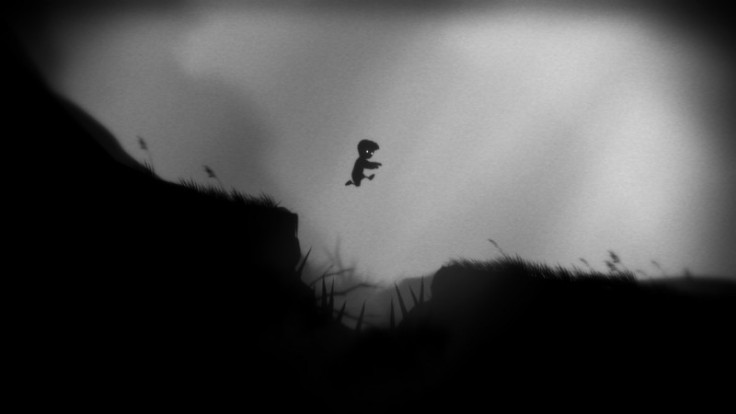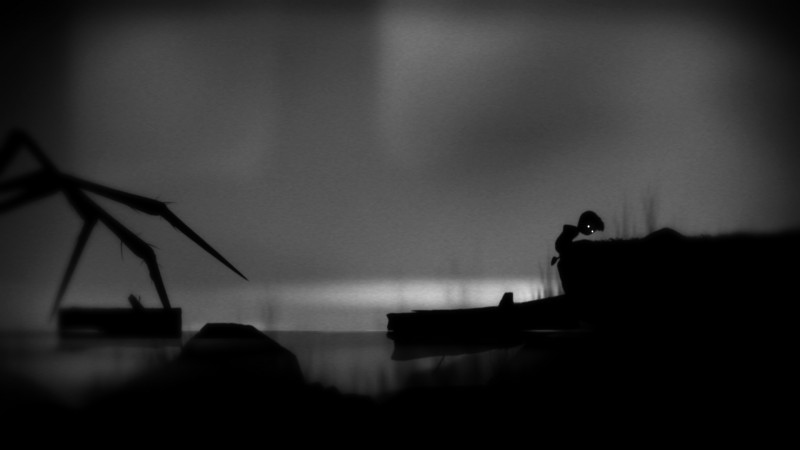Limbo retrospective: Playdead's debut is a brutally honest depiction of childhood
Ahead of Playdead's new game Inside, we take a look at the Danish studio's stunning debut.

In video games, childhood is often presented as innocent, pleasant and preferable to adulthood. Considering how video games encourage play, and that play is how games create a dialogue with their audience, to find idyllic representations of childhood is hardly surprising. Video games rely on play and play is a childish action, or at least has connotations of childhood. It follows that video games extol the wonders and joy of childhood.
Yet games that represent childhood rarely get to the heart of the themes or characters which they claim to represent. Papo and Yo is ostensibly a game about alcoholism and parental abuse, but because it is viewed through a child protagonist the severity of real-life alcoholism and violence is filtered and diluted. Anchored by metaphor, Papo and Yo feels more like a cosy bedtime story than a trenchant look at child abuse.
The same might be said of Brothers: A Tale Of Two Sons, Beyond Eyes And Among The Sleep, all of which use depictions of childhood as a kind of excuse to avoid the complexities of trauma and human emotion, and to position themselves not as difficult fiction, but light entertainment.
However, by leaning so heavily into metaphor, video games shy away from portraying the tougher parts of childhood. Its various traumas are not small, poetical or, as games commonly imply, part of an experiential journey toward betterment. In plenty of cases, childhood is bleak.
As such, Limbo, by Danish studio Playdead remains one of the most painfully honest games about youth. Instead of golden and fair, its black and white aesthetic is harsh. The entire game looks like barbed wire, insisting its world is not one you should dare enter.
Fittingly, every part of Limbo, be it an inanimate platforming puzzle or something alive, is hostile, and lethal to the touch. If a crate should land on your character – a small, wide-eyed boy – he is killed instantly. If he should stumble into one of the bear or arrow traps left by his largely unseen enemies, he will be cut into pieces. Loose cables electrocute the boy. Swinging logs decapitate him. A giant spider impales him through the chest. In turn, the boy runs human enemies into their own pitfalls; he pulls off the spider's legs one by one, then rolls its giant body into a chasm of razor sharp thorns. There are no blood effects as such – Limbo's side-scroller perspective frames all of this horror in crisp greyscale – but rarely will you find a video game as brutal, particularly one centred around a tiny child.



Such brutality is what ties Limbo together. When characters in video games are so routinely blown up, shot and chopped up, to treat child characters as precious flowers, who must either never die on-screen or whose deaths must be sanitary and metaphorical, is to suggest they are other than humans. Whereas Papo and Yo, Beyond Eyes et al mawkishly insist that childhood is an elevated, almost supernatural state of being, Limbo, in the very literal sense by repeatedly exposing his blood and bones, reminds us that its young character is a human being.
A human being who lives in a hostile world. As a child, the real world can appear similarly hostile. Rather than patronising children by insisting they are rare, delicate beings of pure light, Limbo empathises with them. Far from heavy-handed, its shocking violence is a short, sharp affirmation of children's humanity – by extension, it accepts they are complex, vulnerable and that their pain has more meaning than as trite metaphor for hot-button issues.
Limbo's conclusion, wherein the boy finds his missing sister but, judging from how similar her backdrop appears to the game's beginning and the title of the game itself, may be doomed to repeat his journey ad infinitum, is its greatest effectuation. Invariably, games about childhood and childhood trauma suggest that through pain and exposure to life's hardships, a child develops and becomes stronger. At the end of Papo and Yo, the young boy pushes the monster that represents his drunken father into a void, implying he is now able to let go of the past and move on; in the final section of Brothers, the younger brother can suddenly be controlled using the buttons previously assigned to the older brother, suggesting he has matured.
Limbo's ambiguity – the insinuation that perhaps the forest, its monsters, are doomed to plague the boy forever – is painfully honest. Childhood is not a journey of self-affirmation, out of which emerges, as if from a chrysalis, a harder, better, faster, stronger human being. It can leave nascent damage, create inescapable problems, catalyse poisonous, affected world views. It concludes in a manner that is purposefully left for players to interpret, perhaps based on their own experiences of youth, but certainly above its peers, Limbo understands childhood can hurt, and continue to hurt longer after it is over.
For all the latest video game news follow us on Twitter @IBTGamesUK.
© Copyright IBTimes 2025. All rights reserved.



















